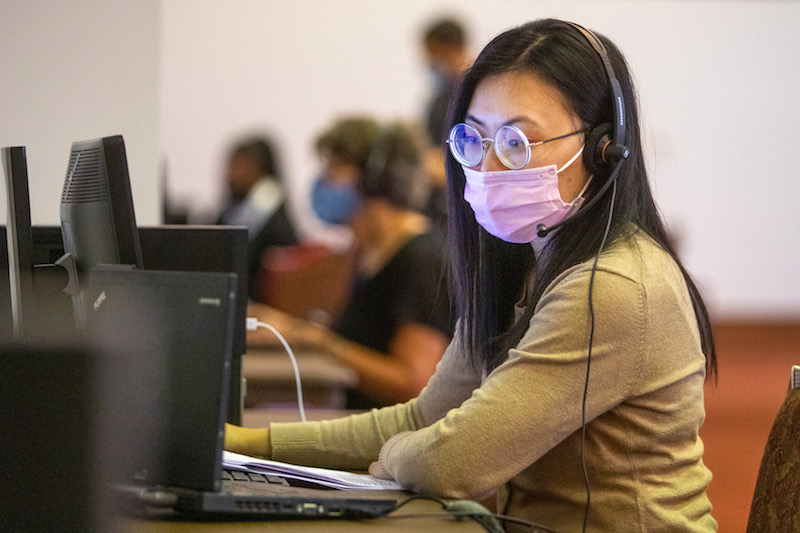
As Florida State University students return to school this fall, new COVID-19 protocols and programs await them as the university works to ensure the health and safety of the entire campus community.
A pillar of this effort is the Secure Assessment for FSU Exposure Response (SAFER) initiative. The program aims to mitigate the spread of COVID-19 through contact assessment, while providing support for students, staff and faculty who have been exposed or tested positive for the virus.
Identifying close contacts is key to halting the spread of the virus, said Emily Pritchard, administrative lead for the SAFER initiative. Pritchard is FSU’s liaison to the Florida Department of Health for COVID-19 and research faculty in Biomedical Sciences at the FSU College of Medicine.
The SAFER Team determines whom infected persons might have come into close contact with and tells them to stay home, Pritchard said.
“It’s critical to act quickly,” she said. “We have fantastic 24-hour turnaround at the TMH-FSU Rapid Response Laboratory, and thus far, SAFER has been able to reach close contacts within 24 hours of receiving their information.”
Dr. Daniel Van Durme, the chief medical officer for the COVID-19 testing program, said determining whom infected persons might have come in contact with is crucial to halting spread.
“The big issue now is that 40 percent of people who have the virus never show symptoms, and that’s even higher in healthy, young people,” said Van Durme. “You just can’t count on people knowing they are sick and staying home. That’s the critical factor — people walking around spreading it without knowing it.”
Van Durme added: “It is tremendous to have our own team that can work closely with the county health department to rapidly identify and help coordinate management of our people.”
SAFER also acts as a confidential conduit for students, staff and faculty to navigate the challenges COVID-19 might pose, including access to academic, personal and financial support.
That process begins once the SAFER team receives notification of a positive case from the health department, University Health Services or an individual who self-reports. A call center has been established for outreach and to field incoming calls.
Next, a SAFER team member will perform a confidential case interview, as established by CDC guidelines to ensure infected persons are isolating and to help determine who they’ve had close contact with. Those identified as close contacts are asked to quarantine.
Students who have been asked to isolate or quarantine can use SAFER to connect with a broad array of support across the university including academics, mental health, housing and financial assistance.
“Our work here at FSU can help students maintain a level of normalcy as campus re-opens. It’s nice to see that we have direct impact in the university community,” said Nathaniel “Eli” Barrera-Nitz, a SAFER staff member and Master of Public Health student who also assisted the Florida Department of Health with contact tracing in Daytona Beach over the summer.
According to the CDC, close contact is defined as:
- Being within 6 feet of an infected person for at least 15 minutes
- Providing care at home to someone who is sick with COVID-19
- Direct physical contact with the person (touched, hugged or kissed them)
- Sharing eating or drinking utensils
- An infected person sneezed, coughed or somehow got respiratory droplets on an individual
Individuals exposed while on campus or who test positive for coronavirus can report it at my.fsu.edu in the new Daily Wellness Check. Individuals should expect a confidential call from the SAFER Team and be prepared to answer calls from SAFER at (850) 644-5555 and the Health Department.




